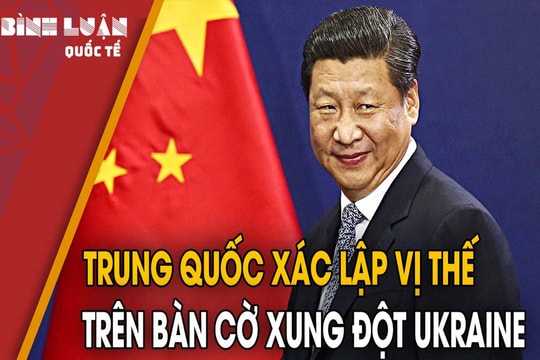China retaliates against the US with its strongest move ever
China announced on April 4 (local time) that it will impose a 34% tariff on all goods imported from the US from next week - part of a series of measures to respond to new tariffs announced by US President Donald Trump. This is considered Beijing's strongest move since the trade war between the world's two largest economies broke out.
Retaliatory measures
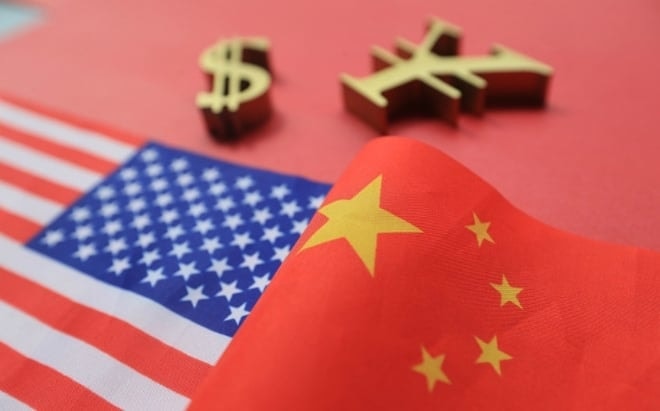
The new Chinese tariffs, which take effect on April 10, will be similar to the tariffs Trump imposed on Chinese goods this week. In February and March, Trump imposed two rounds of 10% tariffs on Chinese goods, citing Beijing’s role in the fentanyl crisis in the United States.
Shortly after China announced its retaliation, the US stock market plunged. In addition to imposing tariffs, China also announced tighter controls on exports of rare earths – vital materials in many technology industries – and filed a complaint with the World Trade Organization (WTO) over what Mr. Trump called “reciprocal tariffs.”
China has also suspended imports of sorghum, poultry and bone meal from six U.S. companies and added 27 to a trade restriction list. Beijing has also launched an antitrust investigation into DuPont China Group Co., a subsidiary of the multinational chemical giant DuPont.
On the social network Truth Social, Mr. Trump wrote on April 4: “China made a mistake, they panicked – that is something they cannot stand.”
Still, he has left open the possibility of talks with China over TikTok, even as Beijing has halted discussions after the US imposed new tariffs. On April 4, Mr. Trump extended the app’s 75-day deadline to separate from its Chinese parent company under a federal rule.
“We hope to continue to work in good faith with China – I understand they are not happy with our reciprocal Tariffs,” Trump wrote. “We look forward to completing the deal with TikTok and China.”
China's response is increasingly tough
Beijing’s response this time was “much less restrained” than the two previous rounds of 10% tariffs imposed by the US, reflecting “a decline in China’s hopes of reaching a trade deal with the US, at least in the short term,” said Gabriel Wildau, CEO of consultancy Teneo.
He said Beijing's tough response could lead to further escalation of tensions, amid no signs that Chinese President Xi Jinping and Mr. Trump will soon meet or talk by phone to cool the situation.
“If China’s previous responses were scalpels, this time they have drawn their sword,” said Craig Singleton, a senior China expert at the Foundation for Defense of Democracies (FDD), a Washington-based think tank.
“China’s new tariffs don’t amount to a full-blown trade war, but they are clearly an escalation — matching Trump’s every move and showing Xi Jinping will not sit idly by in the face of pressure,” Mr. Singleton said.
However, he also warned that escalating tensions were narrowing the window for diplomatic efforts. “The longer it drags on, the harder it will be for both sides to de-escalate without losing face,” Mr. Singleton said.
Details of China's retaliatory measures
In Beijing, China’s Ministry of Commerce said it would impose additional export controls on rare earths — materials used in high-tech products such as computer chips and electric vehicle batteries. The new list includes the element samarium and its compounds, which are used in aerospace and defense manufacturing. Another element is gadolinium, which is used in magnetic resonance imaging (MRI) machines.
China’s General Administration of Customs also announced the suspension of imports from two US poultry companies after detecting furazolidone – a drug banned in China – in their shipments. It also found high levels of mold in sorghum and salmonella bacteria in bone meal from four other US companies.
The Chinese government said it also added 16 US companies to its export control list, preventing them from exporting dual-use products (which can be used for both civilian and military purposes). These include High Point Aerotechnologies, a defense technology company, and Universal Logistics Holding, a publicly traded freight forwarder.
In addition, 11 other US companies – including drone manufacturers such as Skydio and BRINC Drones – were placed on the "unreliable entity list", which prohibits them from carrying out all import-export activities and new investments in China.
In a notice of filing a complaint with the WTO, China's Ministry of Commerce asserted that Mr. Trump's new tariffs "seriously violate WTO regulations, seriously damage the legitimate rights and interests of WTO members, and seriously disrupt the global economic and trade order."
Beijing's previous tariff moves
In February, in response to the first round of 10% tariffs from the US, China imposed a 15% tariff on coal and liquefied natural gas imports from the US. Beijing also added a 10% tariff on crude oil, agricultural machinery and large-engine cars.
A month later, in response to Mr. Trump’s second round of tariffs, Beijing imposed tariffs of up to 15% on key U.S. agricultural products, including chicken, pork, soybeans, and beef. Experts at the time said that China was still holding back, leaving open the possibility of negotiations with Washington.
Dozens of US companies are now on the list of companies restricted from trading and investing with China. Conversely, many Chinese companies are also subject to similar bans from the US.
However, the two sides still maintain a military dialogue channel. This week, US and Chinese defense officials met for the first time since Mr. Trump took office in January. According to statements from both sides, the meeting in Shanghai lasted 2 days (April 2 and 3) with the goal of minimizing the risk of collision at sea.

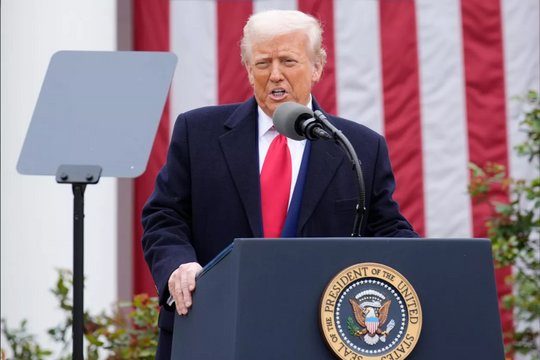

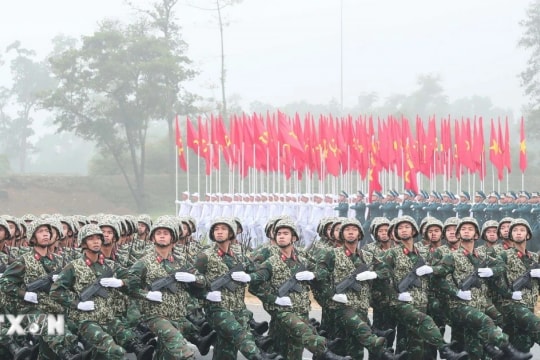
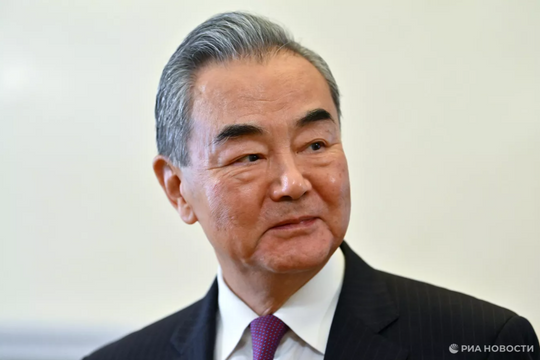
.jpg)
